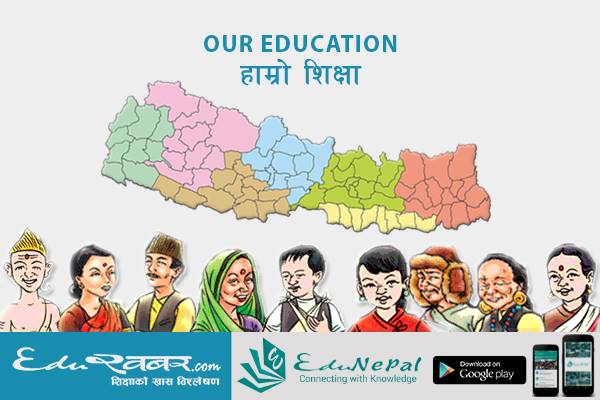
Kailali - The local representatives have already spent five months of their tenure. But they are unsure on how to implement the responsibility regarding education tasked to them by the constitution. The constitution says that it is the responsibility of the local government to take care of the secondary education but the confusion among office bearers of the local government has made the task very daunting.
The office bearers of the Dhangadi sub metropolitan city elected from the second round of local polls held in June 1 say they are still trying to understand what the new rights are. The deputy mayor Sushila Bhatta says plans for implementing the role is on its preliminary stage. She says the local government is trying to evaluate the quality of education in public schools within the sub metro, find out rules regarding enrolment of schools, check out the teachers and students ratio and ratio of girl’s enrolment among others.
‘We have noticed that the physical infrastructures in schools need to be upgraded significantly, some of the school buildings need serious renovation,’ she says. ‘We also need to increase vacancies of teachers in some schools. In addition to this, we also need to find of the reasons for increasing trend of school dropouts. We have initiated serious dialogue on the matter.’
In Kailali, there is one sub metropolitan unit and other 12 local bodies. They are struggling to figure out how to implement their constitutional right by mobilising the local resources. Experts say it is a matter of grave concern that such an important duty assigned to local governments has not yet been properly discussed. They stress the need to chart out a roadmap on need assessment and resource mobilisation to fulfil the duty.
Relevant stakeholders say they understand the problems surrounding the education better than district or central level authorities. They also claim that the local representatives can play better role to address those problems. They also argue that the local bodies can play important role to improve the quality of education by enforcing greater oversight on school education. However, in Dhangadi sub metropolitan city the elected representatives are yet to take tangible steps towards management of schools and uplifting of education quality.
However, the teachers, parents and other concerned stakeholders in the area are optimistic that there will be positive outcome. They say that the local government should properly exercise its duty and take appropriate decisions.
A local resident Minadevi Sob is hopeful. She says the local government should pay special attention to the educational rights and its implementation. Dhana Joshi, of Dhangadi-3 says she is happy that the local governments are entitled with the right to oversee school education. ‘The local officials can easily identify and resolve the problems of teachers, students and parents. We can now directly communicate with our local governments.’
Dhana Bahadur Singh, the principal of the Janata Adharbhut Bidhyalaya says he is optimistic about the improvement in the quality of education. He says the local government should take steps in improving the physical infrastructure of public schools, resolve the issues regarding vacant positions of teachers and similar problems that are affecting quality of education.
Some experts however point out the need to make parents accountable to improve the status of education. Dhanapati Dhungel, a local NGO worker, says ‘Parents are ready to pay fee and send their kids to private schools providing them nice dress, tiffin’s and books but parents who send their kids to public schools are not paying attention to these issues. We need to end this situation.’ He argues that all the parents should reach out to the teachers and take updates about the achievement of learning of their kids. He also stressed the need of making teachers accountable and focusing on finding out resources to finance education. He argued that there would be no lack of resources if the local governments seriously want to fulfil their responsibility.
Some experts, however, have a serious doubt over the efficiency of the local governments. They claim that the quality of education would only improve if the relevant authorities clearly chart out their roles and responsibilities. Dharmadev Bhatta, the chief of the Aishworya Multiple Campus Dhangadi, says the quality of education would improve if law is implemented thoroughly. He says the local government should not limit their rights ‘just in papers’ and should focus on implementing it.
Experts say the handover of the responsibility of school education to local government means that all the decisions related to identifying needs and allocating priorities is also now transferred to local authorities. They say that legally local government now should not just rely on central, regional and district level authorities for setting up its goals. However, it needs to focus on finding out funds and mobilising the resources in a responsible manner to advance the quality of education.
This report was aired in the radio programme Hamro Sikshya. Please listen the full programme here: Radio Program
प्रतिक्रिया